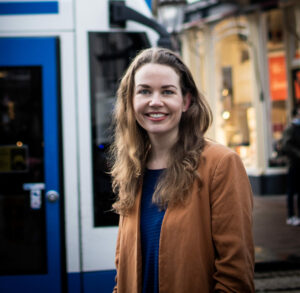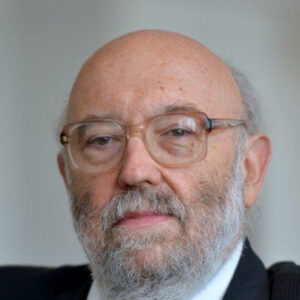 Shifting Towards Urban Sustainability: Practical Implementation of Doughnut Economics
Shifting Towards Urban Sustainability: Practical Implementation of Doughnut Economics
Classical neoliberal economy did not deliver; new approaches are necessary. Green politics support innovative approaches to economic sustainability which contribute to the transition towards societies that enable a good life for all within the physical limits of our planet. The doughnut economy model, proposed by the economist Kate Raworth, seams to fit for the challenges of the 21st century. More than 70 cities in the world already implement the doughnut model.
This session will present four examples of “doughnut cities”: Amsterdam, Grenoble, Barcelona and Belgrade, followed by a workshop where the participants will consider several specific questions anticipating the potential implementation of the doughnut in their cities.
Speakers
Elisabeth IJmker – City Councillor, GroenLinks Amsterdam
 Elisabeth IJmker has been a city councillor for GroenLinks in Amsterdam since 2021. She also works as a researcher at the Institute for Interdisciplinary Studies at the University of Amsterdam. Previously she worked as a civil servant both at the Ministry for Foreign Affairs and at the City of Amsterdam. She has a background in political economy and international relations. Her areas of expertise include local economy, digitalisation, and mobility.
Elisabeth IJmker has been a city councillor for GroenLinks in Amsterdam since 2021. She also works as a researcher at the Institute for Interdisciplinary Studies at the University of Amsterdam. Previously she worked as a civil servant both at the Ministry for Foreign Affairs and at the City of Amsterdam. She has a background in political economy and international relations. Her areas of expertise include local economy, digitalisation, and mobility.
Dr Andrzej Kassenberg – Founder, Institute for Ecodevelopment

Dr Andrzej Kassenberg co-founded the Foundation of the Institute for Sustainable Development and has been its president for 24 years. His scientific activity revolves around the fields of sustainable development in energy and climate protection. He’s the first chairman of the Commission for Environmental Impact Assessment under the former Minister of the Environment. From 1991-95 and 1999-2000 he was a Member of the Environmental and Social Council of the President of the EBRD. Former Chairman of the Regional Environmental Centre for Central and Eastern Europe. Participant at the Earth Summits in Rio de Janeiro and Johannesburg. Moderator of the Round Table on Environmental Education. Winner of awards, including the Scientific Award of the Polish Academy of Sciences, “Polish Ecology Man of the Year 2005” and the Green Eagle on the occasion of the centenary of the “Rzeczpospolita” with the title TITAN and a pioneer of Polish ecology. Author or co-author of approximately 230 publications, reports and professional materials.
Miloš Kovačević- Researcher at the Faculty of Philosophy in Belgrade
 Miloš Kovačević is a philosopher, researcher at the Faculty of Philosophy in Belgrade, and member of the Platform for Theory and Practice of Commons – zajedničko. For five years, he has been hosting the radio show Commonification and interviewing over 70 left-wing scholars and activists. He developed a doughnut economic model for four cities in Serbia and annotated bibliography/library about commons. He is publishing on various topics, including non-standard employment, universal basic income/services, and commoning. His most recent contribution in the field of green politics is “What Happens When Artists Discover Commons: A Conversation with Irena Ristić” published in From Praxis to Policy: Environmental Shift through Art and Culture .
Miloš Kovačević is a philosopher, researcher at the Faculty of Philosophy in Belgrade, and member of the Platform for Theory and Practice of Commons – zajedničko. For five years, he has been hosting the radio show Commonification and interviewing over 70 left-wing scholars and activists. He developed a doughnut economic model for four cities in Serbia and annotated bibliography/library about commons. He is publishing on various topics, including non-standard employment, universal basic income/services, and commoning. His most recent contribution in the field of green politics is “What Happens When Artists Discover Commons: A Conversation with Irena Ristić” published in From Praxis to Policy: Environmental Shift through Art and Culture .
World Café tables moderated by Ewa Sufin-Jacquemart and Artur Wieczorek, Strefa Zieleni. Graphic recording: Beata Cymerman, Heinrich Böll Stiftung Warsaw.

